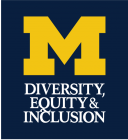Accessibility is a priority at the University of Michigan and in Information and Technology Services (ITS).
Becoming more accessible as an institution will mean a fundamental shift in approach to how we plan, design, develop, create, and instruct. This shift in approach will be widely beneficial to every facet of campus, as it will increase equitable access among faculty, staff, and students.
Accessibility is defined as providing an equitable means for all people to engage with the world regardless of (dis)ability. However, in order to make accessibility a campuswide effort, the university has further shown its commitment with the anticipated rollout, in December 2018, of a Standard Practice Guide (SPG) on Accessibility. The SPG is meant to make clear our commitment to accessibility, and spell out the implications of what it means to be ‘accessible’ in the context of legal requirements and university expectations for equal access. A unified approach to accessibility is the only way to make accessibility scalable among the vastness of our U-M community.
Meet the Digital Accessibility team
In addition to the SPG, guidance documents are being constructed by our Digital Accessibility team:
- Jane Berliss-Vincent, ITS assistive technology manager
- Gonzalo Silverio, ITS digital accessibility analyst
- Darrell Williams, ITS digital accessibility analyst
- The ITS committee for diversity, equity, and inclusion (DEI)
- Phil Deaton, the new digital information accessibility coordinator in the Office of Institutional Equity (OIE)
ITS is charged primarily with ITS-produced technology and training, DEI addresses accessibility, among other things, on a unit-by-unit basis, and OIE coordinates accessibility efforts for the university at large.
An emphasis on training
Through coordination with the DEI initiative on campus, OIE, and ITS we are looking to reach every unit and campus to bolster and support their current approaches to accessibility. In-person courses on digital and web accessibility ranging from introductory (101) courses to accessibility for developers and designers will be offered to ITS staff. These courses are being designed to provide code and design-level solutions to common problems, as well as to educate on the human implications of producing inaccessible technology.
By working with the digital information accessibility coordinator, we hope to transform these courses for faculty to use in their instructional materials as well.
New tools to scan for accessibility
Toward these efforts, ITS has acquired WorldSpace Comply from Deque Systems, an accessibility scanning application that scales to accommodate large companies or universities. We hope this tool will be instrumental in tackling high-incidence accessibility issues that are common throughout large universities, like color-contrast, heading structure, and alternative-text. ITS is currently configuring the software and will make it available to certain representatives on campus when appropriate. Also, a UDoit pilot is underway (UDoit stands for Universal Design Online Content Inspection Tool), which is aimed at increasing the accessibility of Learning Management Systems, and instructional materials.
Cross-campus collaboration
At UM-Dearborn, UM-Flint, and Michigan Medicine, similar efforts are being made at every level to become more accessible. At the Dearborn campus, communications and ITS departments are injecting accessibility into workflows through content management systems, captioning policies, and accessibility review software. Additionally, accessibility use cases have gone a long way to help understand the needs of end users. We see similar efforts at both UM-Flint and Michigan Medicine. Increased coordination across U-M campuses will be instrumental in understanding the full scope and needs of our students, faculty, and staff in regard to accessibility.
Our shared goal is to prioritize accessibility in a way that is relevant to the individual and to educate our staff, so we all embrace a culture of inclusivity. We still have a ways to go, but our commitment is present and strong.
If you would like to get involved with accessibility efforts, please speak with the DEI committee leaders within your unit, or email Gonzalo Silverio, Darrell Williams, or Phil Deaton.

